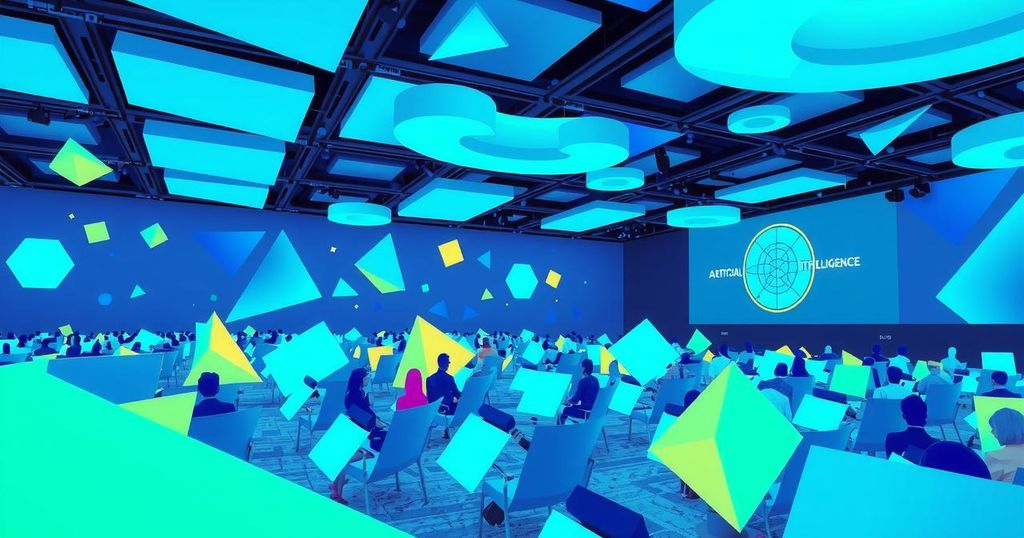Exploring the Soul of AI: Insights from the Approaching AI Summit
The Approaching AI Summit in Ashland explored the complex relationship between artificial intelligence and human creativity. Artists and industry leaders debated whether AI serves as a tool for democratization or a potential threat to artistic integrity. The discussions underscored the importance of approaching AI thoughtfully to enhance creativity and productivity while safeguarding ethical standards.
In Ashland, the Approaching AI Summit ignited deep discussions about artificial intelligence, probing whether it poses a threat, serves as a creative partner, or embodies both roles. Artists debated the boundaries of AI and human creativity, questioning if AI could ever overshadow the intrinsic human soul in art creation. The panels explored how AI facilitates rather than undermines creative expression, akin to how Photoshop revolutionized photography.
Teighe Thorsen likened AI’s role to that of photography tools, emphasizing how AI enhances productivity by streamlining processes. Filmmaker Nisha Burton expressed hope that AI democratizes creativity, enabling every individual, even those without formal training, to create and share art. This accessibility, she explained, dismantles elitist notions about artistry, allowing broader participation in creative endeavors.
However, concerns arose about the integrity of art produced with AI. Micah Blacklight voiced apprehension over AI’s potential for misuse, where artists’ unique styles could be mimicked without consent. He believes that this jeopardizes authentic artistry and poses moral dilemmas. Storyteller Cynthia Salbato suggested that AI could foster collaboration, facilitating deep connections among creators despite its troubling origins.
Amid the philosophical discourse, many panelists expressed their belief in a distinct human essence. Blacklight contrasted the whims of AI with the soul of humanity, suggesting that while AI can imitate creative processes, it lacks genuine emotion. He pondered whether advanced AI might one day emulate a kind of divine intelligence, urging that humanity must navigate this new territory with care.
The latter panel focused on AI’s utility in commerce, industry, and education. Adam Curry called for a culture of innovation in workplaces, encouraging employees to embrace disruptive thinking. Dr. Kim Freeze highlighted AI’s role in helping neurodivergent individuals unlock creativity by automating mundane tasks, thus freeing up mental space for innovation.
Aaron Moffat and Thor Muller noted AI’s unique ability to bridge ideas from inception to prototype, revolutionizing business practices. Moffat pointed out that AI offers opportunities to solve complex challenges previously deemed insurmountable and suggested innovative practices like voice-to-text for efficient writing.
Amidst this exploration, the summit closed with a reminder from moderator Paul Hyneck that AI can serve as a companion in learning. He showcased its capabilities in real-time, emphasizing the empowerment AI can offer if approached with curiosity and open-mindedness.
The summit’s discussions culminated in a vision where technological evolution coexists harmoniously with human creativity, urging participants to embrace this shifting paradigm while remaining vigilant about its implications.
The Approaching AI Summit in Ashland delved into profound questions about the intersection of artificial intelligence and human creativity. Discussions ranged from the potential of AI to enhance creativity to the ethical concerns surrounding artistic integrity. The consensus highlighted a cautious appreciation of AI as a tool that, when used thoughtfully, could democratize creative expression and streamline productivity. The call to action was clear: as humanity navigates this technological landscape, embracing innovation while maintaining integrity is crucial for future artistic and professional realms.
Original Source: ashland.news




Post Comment